Every business running NetSuite hits the same wall: standard support handles ticket requests but leaves bigger problems unsolved.
Whether it’s recurring errors, untested upgrades, or integrations that quietly fail in the background, “basic support” doesn’t cover the real challenges finance, ops, and IT leaders face every quarter.
That’s why businesses look beyond Oracle’s default model and turn to providers who offer true post-implementation expertise—the kind that keeps NetSuite stable, optimized, and ready to scale.
This guide breaks down the support options available and shows you how to choose services that actually deliver results.
Understanding NetSuite Support Services Landscape
NetSuite support can mean very different things depending on who you ask.
For some, it’s a help desk that resets passwords and answers basic questions. For others, it’s a strategic partner that keeps complex integrations running and ensures new features don’t derail operations.
Understanding these differences is the first step to finding support that actually matches your needs.
Oracle NetSuite’s Standard Support limitations
Oracle provides basic coverage, but it’s intentionally broad and limited.
It’s useful for uptime guarantees and critical case logging, but not when you need real fixes tied to your business model.
For example:
- A distribution company struggling with delayed bank feeds won’t get hands-on troubleshooting.
- A SaaS firm trying to align ARM schedules with ASC 606 rules won’t get customized help.
- Teams often wait days for answers that don’t actually resolve the issue.
This is why many businesses eventually explore alternatives—see NetSuite Support US: 4 Contract Terms That Quietly Work Against You for how standard contracts can box companies in.
Third-party Support advantages and options
Independent support providers bridge those gaps with services designed for post-implementation realities:
- Integration coverage: Monitoring Shopify, HubSpot, banking APIs, or WMS tools that Oracle doesn’t touch.
- Release preparedness: Testing customizations before every Oracle update so month-end reporting isn’t derailed by a script failure.
- Flexible resourcing: Engaging on retainer, by the hour, or seasonally during year-end and audit crunches.
These differences often lead companies to switch providers once the cracks in standard support become too expensive to ignore.
Specialized vs. General NetSuite Support Providers
Not all “NetSuite support services” are equal.
General IT vendors may solve surface-level issues, but they rarely understand finance, supply chain, or compliance requirements inside NetSuite.
Specialized providers bring:
- Certified expertise: Consultants trained in SuiteFoundation, ARM, or OneWorld who understand module-specific challenges.
- Contextual knowledge: For example, knowing how to configure consolidations for multi-entity firms or how to optimize inventory costing for manufacturers.
For a closer look at what advanced service levels actually include, see NetSuite Support US: 5 Service Levels Most Providers Don’t Offer.
Comprehensive NetSuite Support Services Breakdown
Once businesses outgrow basic support, the real question is: what services actually create measurable impact?
Stockton10 clients often come to us after discovering that “support” meant nothing more than a case queue.
True NetSuite support services cover far more than break/fix tickets—they’re about sustaining performance, driving adoption, and preventing bottlenecks before they cost you money.
Technical troubleshooting and system optimization
Support shouldn’t mean logging the same ticket three times. Specialized partners go deeper by:
- Root-cause fixes: Not just patching a saved search, but addressing why reports stall whenever transaction volume spikes.
- Performance optimization: Reviewing custom scripts, workflows, and data volume to stop lag before users abandon the system.
For a structured approach to ongoing improvements, see 5 Proven NetSuite Optimization Models to Maximize ERP ROI.
User training and onboarding support
Oracle’s SuiteAnswers library is no substitute for real training. Stockton10-style support includes:
- New hire onboarding: Walking accountants or sales ops staff through dashboards, KPIs, and workflows so adoption sticks.
- Refresher sessions: Helping teams adjust when processes evolve or new modules go live.
Without this, users often default back to Excel, undoing the very value NetSuite was meant to provide.
Custom development and enhancement support
Business models change—support should adapt too. That means having experts who can:
- Extend NetSuite with SuiteScript: Automating recurring journal entries or approvals tailored to your environment.
- Enhance dashboards and workflows: Giving managers real-time insights instead of static spreadsheets.
When providers treat these requests as “separate projects,” costs balloon. Comprehensive support bakes them into the plan.
Integration maintenance and monitoring
Disconnected systems are one of the biggest sources of hidden costs. Support should include:
- Proactive monitoring: Watching Shopify, HubSpot, bank feeds, or WMS sync logs so errors get caught before orders back up or reconciliations fail.
- Connector fixes without new SOWs: A payment gateway posting duplicates or a bank feed dropping transactions shouldn’t trigger weeks of downtime and new contracts.
For more on integration pitfalls, see 7 NetSuite Integration Gaps to Avoid (and How to Fix Them Fast).
Performance tuning and system health checks
Standard support usually reacts after users complain. Comprehensive NetSuite support should:
- Run structured health checks: Reviewing scripts, permissions, and data growth quarterly to prevent slowdowns.
- Prepare for upgrades: Testing your sandbox before Oracle’s biannual releases so your environment isn’t caught off guard.
This kind of preventive maintenance is what keeps operations steady instead of scrambling every close.
Compliance assistance and audit preparation
Support isn’t just about uptime—it’s about keeping finance clean and audit-ready. That means:
- Role and permission reviews: Ensuring segregation of duties so auditors don’t flag conflicts like one person creating and paying vendors.
- Automated audit trails: Configuring reports and documentation that cut audit prep from weeks to days.
Strong compliance support is often the difference between a smooth review and a painful, expensive redo.
5 Signs You Need Enhanced NetSuite Support Services
Standard support can only take you so far. Here are the clearest warning signs it’s time to level up and invest in deeper NetSuite expertise.
- Unacknowledged tickets piling up: If your “open” queue looks the same week after week, critical fixes are falling through the cracks.
- Custom scripts breaking after updates: Quarterly Oracle releases often knock out SuiteScripts or workflows and standard support won’t debug them for you.
- Integrations drifting out of sync: CRM, ecommerce, and WMS connectors generate silent errors that only surface when customers or vendors start complaining.
- Teams reverting to manual workarounds: New hires often copy others’ habits, and without active training, you end up with entire departments sidestepping NetSuite.
- Performance degrading at scale: When transaction volume grows, unoptimized roles, scripts, and searches slow the system down, even if things looked fine a year ago.
Proactive vs. Reactive NetSuite Support Approaches
Many companies stay stuck in reactive mode waiting for tickets to pile up, then scrambling to fix issues. Proactive support flips the script, preventing breakdowns before they hit your close deadlines, customers, or cash flow.
Benefits of proactive system monitoring
Proactive monitoring catches small cracks before they turn into system failures.
- Real-time alerts: Detect script errors or failed API calls the moment they happen.
- Cost protection: Prevent issues that can delay invoicing or order fulfillment, which can cost mid-market firms $100K+ in cash flow delays.
Preventive maintenance and optimization
Instead of waiting for users to complain, preventive optimization keeps your ERP tuned to growth.
- Recurring automation checks: Eliminate 10-15 hours of manual reconciliations per accountant each month.
- Configuration audits: Confirm ARM rules, permissions, and workflows are built for compliance, avoiding penalties that can hit $50K+ in public companies.
Regular health checks and performance reviews
A healthy system today can lag tomorrow if scripts or data volumes aren’t reviewed.
- Quarterly reviews: Stockton10 runs structured NetSuite Health Checks that identify bottlenecks before they slow reporting.
- Faster closes: Optimization and cleanup can cut month-end cycles by 30–50%, freeing finance and operations to focus on analysis instead of firefighting tickets.
User satisfaction surveys and improvement planning
ERP adoption isn’t a one-time event—users need consistent feedback loops.
- Targeted surveys: Gather input on dashboards, saved searches, and approval flows to spot friction.
- Actionable fixes: Turn survey findings into quick wins like reconfiguring dashboards so managers pull real-time KPIs in minutes, not hours.
NetSuite Support Service Models and Packages
Support isn’t one-size-fits-all. The right package depends on how critical NetSuite is to your operations and how fast you expect responses.
- Tiered support levels (basic, premium, enterprise): Basic often means ticket-only help. Premium may add phone support. Enterprise-level support should include proactive health checks, release testing, and integration monitoring—the kind of services Stockton10 builds into every package.
- Dedicated support team vs. shared resources: A shared queue leaves you waiting behind other clients. Dedicated consultants know your setup, modules, and quirks—meaning fixes happen faster and with fewer mistakes.
- Response time guarantees and SLA options: Generic SLAs say “we’ll respond.” Stockton10 guarantees a 30-minute first response on urgent issues, where many “premium” plans take hours or even days.
- Monthly retainer vs. per-incident pricing: Retainers keep expertise on call without surprise bills, ideal for ongoing support. Per-incident pricing looks cheaper upfront but can spike costs if integrations fail or Oracle pushes a complex release.
Maximizing ROI from NetSuite Support Services
Support should deliver more than answers—it should show measurable returns across time, cost, and risk.
Calculating total cost of ownership with proper support
NetSuite licenses already run $20K-$40K annually for mid-market firms. Add modules, integrations, and users, and the real spend climbs fast. Paying for weak support that leaves staff fixing issues in Excel doubles that cost. Proper support keeps the system working as intended, protecting the ROI of the licenses you’re already paying for.
Productivity gains from optimized systems
Every hour spent troubleshooting dashboards or reconciling exports is lost output. With proactive support:
- Month-end closes shorten by 30-50%, saving 60+ staff hours per cycle.
- Reconciliations and approvals auto-run, freeing controllers to focus on analysis instead of clerical work.
Risk reduction through expert maintenance
The price of a mistake is always higher than the cost of prevention.
- Compliance penalties: Misconfigured ARM rules or FX rates can trigger restatements or fines over $50K.
- Downtime risk: A failed integration during invoicing or order runs can freeze cash flow, costing six figures in delays for mid-sized firms.
User satisfaction and adoption improvements
A system only pays off if people use it. Support that includes training, surveys, and ongoing optimization keeps adoption high.
- Configured dashboards: Managers get KPIs in minutes instead of waiting on reports.
- Reduced churn: Staff stick with NetSuite instead of slipping back to Excel, ensuring long-term system ROI.
Selecting the Right NetSuite Support Services Provider
Choosing a support partner isn’t just about who answers tickets fastest.
The right provider combines technical depth, industry context, and a clear service approach that matches your growth plans. Here’s what to check.
Key qualifications and certifications to verify
Credentials don’t guarantee success, but they separate seasoned consultants from generalists.
- NetSuite Financial User and SuiteFoundation: Baseline certifications that prove consultants understand core system functions.
- Advanced module expertise: Look for credentials in ARM (Advanced Revenue Management), SuiteAnalytics, or OneWorld if your environment is complex.
- 3-15 years of hands-on experience: Stockton10 consultants average this range, so you’re not getting someone learning on your dime.
Industry experience and specialization importance
Support that ignores your industry’s quirks wastes time and budget.
- Retail and eCommerce: Needs expertise in order-to-cash, inventory costing, and channel integrations.
- Manufacturing: Demands accuracy in fixed assets, BOM costing, and multi-entity consolidations.
- SaaS and services: Requires deep knowledge of subscription billing, deferred revenue, and ARM rules.
Providers that have navigated these challenges before will deliver solutions faster and with fewer trial-and-error detours.
Support methodology and communication protocols
A structured support model keeps your team informed and avoids dropped tickets. Ask:
- How do requests flow? Do all tickets go through a manager, or can users submit directly?
- What’s the escalation path? Critical issues should jump queues, not get buried.
- Are SLAs tracked and enforced? Stockton10, for instance, guarantees a 30-minute first response for urgent tickets.
Clear rules reduce bottlenecks and make accountability visible.
Client references and success stories evaluation
Past performance is the best predictor of future results.
- References from your industry: A SaaS CFO will value hearing how another SaaS company improved ARM accuracy.
- Success stories with numbers: Look for metrics like “40% faster close” or “70% fewer manual reconciliations.”
- Case study transparency: Providers should be able to share anonymized examples without vague promises.
Don’t Let Weak Support Hold Back Your System
Standard NetSuite support fixes surface-level issues, but it won’t stop recurring problems, optimize your setup, or scale with your growth.
Stockton10’s NetSuite support services give you certified consultants, guaranteed response times, and hours that don’t expire—all designed to keep your business moving forward without hidden gaps.
Stop settling for reactive fixes.
Schedule your free consultation with Stockton10 today and discover how expert NetSuite support translates into faster closes, smoother integrations, and measurable productivity gains.














